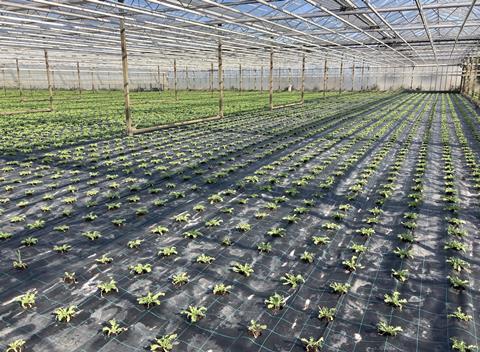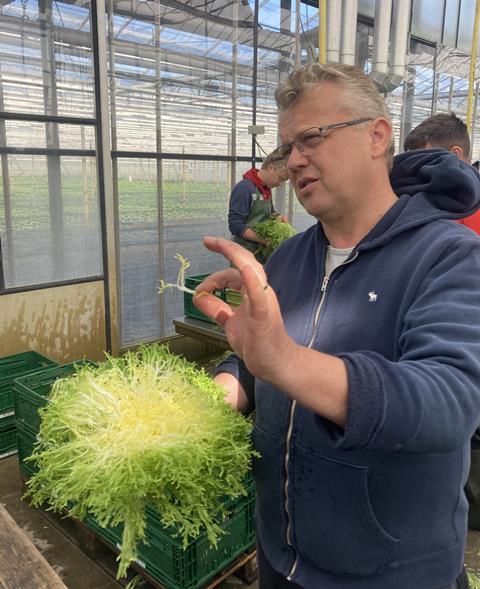Dirk Declercq, chairman of the REO auction in Roeselare, West Flanders, believes specialist, high-end products like curly endives still have an important role to play at the auction

The REO auction in Roeselare, West Flanders, is a one-stop shop for retail, restaurant and hotel buyers, offering as it does a huge range of fresh fruits and vegetables – 82 different kinds, to be precise. Top products include tomatoes, cucumbers, salads, berries and mushrooms, but it is perhaps the auction’s more specialist items, not least the curly endive, that give it its particular character.
“Curly endives account for a small percentage of REO’s overall turnover, but they are an important product, because they are something that most other markets don’t have,” says Dirk Declercq, grower of curly endives and newly appointed chairman of REO. “We are the only ones who can produce for seven months non-stop.”
“My grandfather started the company just after the war,” Declercq explains. “In 1947, he built a wooden glasshouse for tomatoes and plain salads. But we didn’t have enough land to go big, so he looked for something more specific, something that required more labour but brought more value per square metre.”
That journey led to curly endive – known for its distinctive bitter flavour and strong structural integrity, making it popular in upscale kitchens. The Declercq family has spent decades refining production, which now covers 2ha of greenhouse space and another 2ha outdoors in the summer.
“We used to plant directly in the soil, but now we use a kind of folia – plastic sheets with holes,” he says. “It stops the weeds and reduces the need for herbicides. The soil here is rich, so everything – the crops and the weeds – grows quickly.”

Manual work is still at the heart of the operation. “We plant three times a week and harvest six times,” he says. “Only Sundays we don’t cut. From March to November, we’re harvesting every day. That’s what sets us apart – we offer fresh product every single day.”
Exports were once a key pillar of the business, particularly to the UK. “Before Brexit, the London market was big for us,” Declercq recalls. “But now it’s not easy. If we send two pallets with a mixed load, the paperwork is too much. We went from 30 per cent of our exports going to the UK to maybe 0–5 per cent now.”
While the UK market has waned, new frontiers are opening. “We export twice a week by plane to South Korea,” he says. “They want product with no sand, no insects. That’s why the folia system works so well – there’s never any soil inside the product.”
Declercq’s meticulous approach extends to presentation. “Chefs want the heart of the plant to be yellow, not green,” he explains. “It’s sweeter, looks better on the plate and holds up under other ingredients. We use a special elastic to close the heads in the final week, helping them turn yellow and protecting the structure.”
Now joined by his son, Declercq is hoping to pass on the family legacy. “I never pushed him into it, but now he’s here, learning every day,” he says. “We’re not aiming to feed the world, we just want to make something special.”



